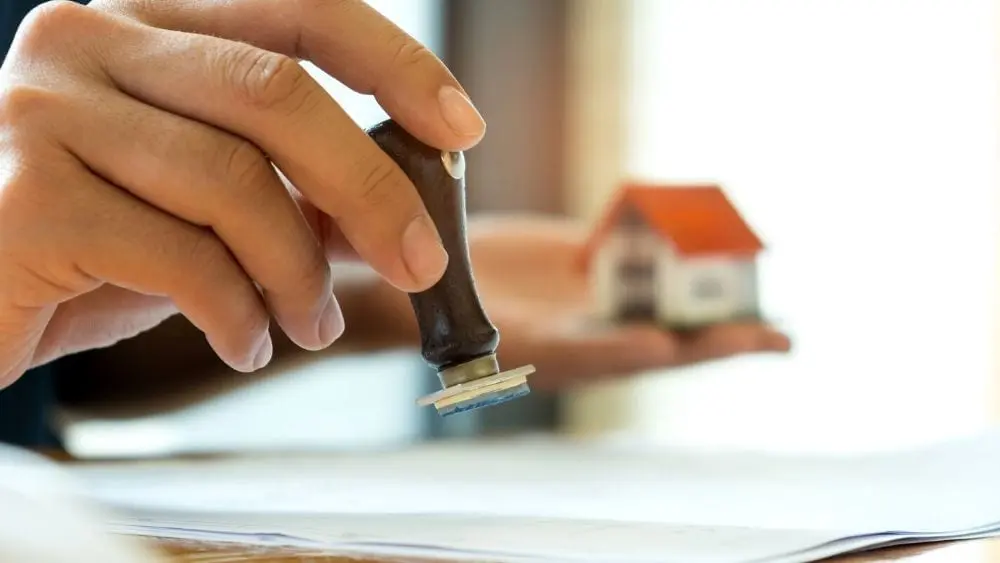
Once you are comfortable in your dream home materially and financially, you may consider paying your mortgage off early.
But are you sure this is the best financial strategy for you? Let’s discover the advantages and disadvantages that come with successfully achieving a mortgage-free life.
So, Should You Pay It Off Early?
This decision depends on the homeowner’s financial situation. Mark Ferguson, real estate investor and creator of real estate blog InvestFourMore, suggests that homeowners first look at how much money they currently have saved.
“Everyone should have an emergency fund, which may be six months of living expenses in case something happens to the breadwinner or winners,” Ferguson says. “If you have no money saved, do not pay off your mortgage early. Start a savings account and do not touch it until you have an emergency fund built up.”
Homeowners should think about whether they will get a better return on investment somewhere else or if they should secure the guaranteed return of the home and avoid future interest costs.
“One factor is how long a homeowner intends to own the property — if they plan on selling next year, then they should put their money elsewhere,” says Brian Davis, content and education director for rental property site, Spark Rental. “If they plan to hold the property for another 20 years (whether as an occupant or eventual landlord), they should consider paying it off early. It also matters how much the interest rate is.”
Advantages
- More equity. When a mortgage is paid off early, the homeowner gains more equity. This gain in equity can provide a sort of financial safety cushion for life’s many unexpected costs, challenges and detours. The equity can also be used later to trade up for a bigger and better home.
- Avoiding interest costs. By paying off a mortgage faster, the homeowner can avoid a disproportionate amount of interest costs. The way simple interest amortization is calculated is that most of the interest is paid in the first two-thirds of the loan term. By paying the balance sooner rather than later, homeowners can avoid the initial period where almost all of the monthly payment goes toward interest and reach the stage where the payment goes toward paying the principle balance.
- Peace of mind. The financial advantage most homeowners may dream of when paying off a mortgage is the resulting peace of mind. With no monthly mortgage payments or debt, the homeowner has more financial freedom and less stress.
Disadvantages
- Difficult access to equity. When a mortgage is paid off early, the money cannot simply be taken out if needed. Homeowners would need to either sell the house, refinance or get a line of credit against the house to access the equity.
- Opportunity cost. The money used to pay off the mortgage could be used elsewhere. Home loan rates are typically much lower compared to other kinds of debt; 4 percent or less in today’s market. Savvy homeowners could invest their money and earn a much higher return than the initial 4 percent. In addition, mortgage interest is tax deductible, so the more you pay off of your mortgage, you will receive lower tax benefits.
- Additional bills. When a mortgage is paid off early, the responsibility of paying a real estate tax and homeowners insurance falls to the homeowner instead of the lender.
Extra Payments
Once you have come to a decision, as well as weighed the advantages and disadvantages, it’s time to plan for the best financial strategy.
Bill Dallas, CEO and co-founder of automated lending company Cloudvirga, suggests making extra payments. The best strategy for you depends on how often you are able to make these extra payments.
Dallas recommends paying one extra principle payment each year.
“That will reduce the term of a 30-year loan to about 18 to 19 years and save hundreds of thousands of dollars in interest, but more important, build more equity for the homeowner,” says Dallas. “If you want to pay off early, make sure you label the one extra payment (principal) and call the servicer to let them know not to apply it to next month’s payment, you want this to go directly to reducing the principal.”
Davis also recommends homeowners make an extra payment each year by arranging bi-weekly payments with the lender.
“If they set it as half of their normal monthly payment, they’ll end up making an extra payment each year than they would have if paying monthly — and they’ll never miss the extra money in their budget,” says Davis. “They should set this up to be automated whenever possible.”
The decision to pay off your mortgage early shouldn’t be taken lightly and success won’t happen overnight. If you’re in the right place financially, however, paying off your mortgage early can be a great way to build equity, avoid interest costs and gain peace of mind for getting closer to a debt-free life.
 Prefab Homes are a Good Fit for First-Time Home Buyers
Prefab Homes are a Good Fit for First-Time Home Buyers